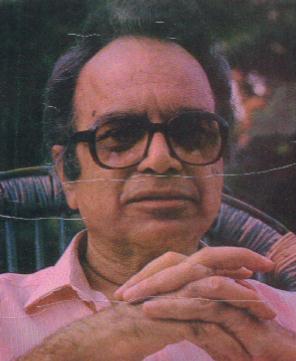Open Letter to Ms. Robin Raphel
By Jagmohan
Your recent statement
(December 13,1996) on 'Maximum Autonomy to Kashmir'  has impelled me to
write this open letter to you. has impelled me to
write this open letter to you.
This statement has left the uncomfortable impression
that you are not averse to the idea of a torn and tormented India an India
that is continuously at war with itself - In the name of artificially whipped
up, impractical and divisive autonomies.
I am driven to write this letter to place on record
my apprehensions about the political architecture that you are advocating
for Kashmir as I sincerely believe that "the only thing necessary for triumph
of evil is for good men to do nothing".
You say, "We really very much hope the Government
of India remembers it has made a commitment to maximum autonomy to Kashmir
and does not let that slip to the back-burner because, if they do that,
you are in danger of having the whole problem under the surface again.
"What you are doing virtually amounts to pouring
oil on the furnace which is already burning intensely.
Is it wrong to infer that you will not allow the
burner to cool?
And does this inference not get reinforced by
your observation:
"The election in Kashmir is not going to resolve
the underlying question of Kashmir as a disputed territory. The question
still remains."
May I remind you that Kashmir's relationship with
the rest of India did not begin in 1947 and it does not rest only on the
Instrument of Accession and Articles 1 and 370 of the Constitution of India.
It is a relationship of mind and soul that has
existed from time immemorial and found ample expression in common avenues
of intellect and emotions, poetry and literature, philosophy and outlook.
Every green pasture that you walk around in Kashmir,
every silvery peak that you watch from pleasurable distance, every stream
that sings its song by your side, every enchanting lake that you come across
now and then and every little town and city that you visit has some signpost
or other of this deep and abiding relationship.
Even when Islam came to Kashmir, it did not alter
the ethos of the common folk.
Most of the Islamic teachings were just grafted
on Vedantic beliefs and thoughts.
The central message of Kashmir's patron saint
and founder of the Rishi order, Sheikh Nuruddin Noorani, was:
There is one God/But with a hundred names;/There
is not a single blade of grass/Which does not worship Him.
What do you think is post-1947 India?
Is it a mere collection of states and territories
or something more than that?
Is it a new political reality only or also an
expression of a common heritage and history, a common culture, a common
set of values that have nursed and nurtured the same way of life for ages
in diverse circumstances and in different regions?
The answer to these questions is clear. The new
republic is a new constitutional entity.
But it is not merely that.
It is also a historical and cultural continuity
- a continuity that is unique, that mocks at the ravages of time and has
remained unperturbed by the scars and strains left by the upheavals of
history.
And all parts of the country, including Kashmir,
are a part of this continuity.
You very well know that Kashmir already enjoys
a high degree of autonomy.
There is a vast area which is under the exclusive
jurisdiction of the state government.
It includes a substantial portion of the Concurrent
List of the Constitution and also residuary powers.
The citizens of India are not ipse facto the citizens
of Jammu and Kashmir.
Even if they have been residing in the state for
years, they cannot acquire the right of settlement and hold property in
the state.
They have no right to vote in the elections to
the state assembly or the local bodies or the panchayats.
No declaration of financial emergency can be made
with regard to J & K as Article 360 of the Indian Constitution has
not been applied to it.
Article 365, which authorises the President of
India to issue directions to the state government in exercise of the executive
power of the Union, has also not been extended to J&K.
In fact, quite a few of the problems of present-day
Kashmir are due not to insufficiency but a surfeit of powers.
You see your own history.
A vast chunk of America - the southern states
- wanted to secede.
You did not allow that.
You fought a civil war.
Both North and South suffered a great deal.
There was hardly a household that did not undergo
trials and tribulations.
But you kept the country united.
Today, you are a great power - the world's number
one.
You call Abraham Lincoln the 'Father of the Nation'.
And rightly so.
You take pride in your great melting pot.
And there is every justification for doing it.
How can then you, of all people, encourage small
sovereignties and unworkable autonomies which are bound to cause tensions,
turmoil and bloodshed?
Why do you forget the long-term implications for
India if it should succumb to momentary pressures?
Has the partition of India solved any problem?
Has it served either the Muslims or the Hindus?
On the contrary, it has kept both in perpetual
poverty.
Old animosities have sharpened and new animosities
have arisen.
Had India remained united, it would have, like
the U.S., become a great power - a model of dynamism and resurgence, a
country in which hunger and backwardness would have been forgotten like
a bad dream.
You need to spare a moment or two for the noble
ideology which inspired the great American visionaries and think why it
is necessary for the United States to create its nests of power in Kashmir
even at the cost of weakening a nation whose heritage of compassion, contentment
and catholicity could contribute a great deal in building a new culture
and civilisation all over the world.
Woodrow Wilson once said:
"If I have forgotten in any degree what America
was intended for, I thank God if you remind me," The purpose of this letter
is to serve as a reminder.
Reproduced from: The Times of India
- January 11, 1997
| 








 has impelled me to
write this open letter to you.
has impelled me to
write this open letter to you.




No one has commented yet. Be the first!